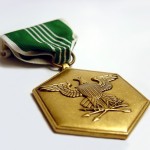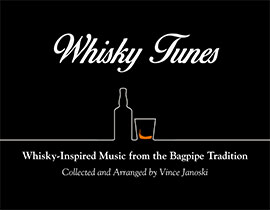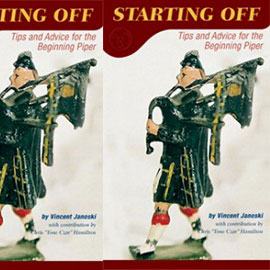Hacking Bagpipe Competitions: Show Me the Money
 Imagine if all schools were run as private interests. The public strikes a deal with the schools that essentially says: “We’ll require that all kids of school age must attend but you will have to run your institution independently with no public funds.” The arrangement seems to work so time goes by with the arrangement in place. I’m sure there are some who think this could work except for the fact that there is no backup plan for all of the children who are left in the cold when the school then decides (because they are independent and free to make this decision) to close its doors and cease operations because of bankruptcy. What then? The school and its operation are essential to the education of the children it serves. This is exactly why it is important to have publicly funded schools.
Imagine if all schools were run as private interests. The public strikes a deal with the schools that essentially says: “We’ll require that all kids of school age must attend but you will have to run your institution independently with no public funds.” The arrangement seems to work so time goes by with the arrangement in place. I’m sure there are some who think this could work except for the fact that there is no backup plan for all of the children who are left in the cold when the school then decides (because they are independent and free to make this decision) to close its doors and cease operations because of bankruptcy. What then? The school and its operation are essential to the education of the children it serves. This is exactly why it is important to have publicly funded schools.
The relationship the EUSPBA has with the Highland games that provide the venue for bagpipe competitions is precisely the above description—complete with the actual and potential risk of the operation shutting down. As important as the games are to the successful functioning of the EUSPBA and competitive bagpiping and drumming, you might think that arrangement would be different.
We here in the EUSPBA happily pay their dues each year for membership in an organization that furthers the art of bagpiping and pipe band drumming. (We can all agree on “happily,” yes?) As such, paying dues, or subscription fee, or whatever you want to call it, to an organization that promotes what you feel passionate about is pretty common in the U.S. National Geographic has built a media and science empire on just such a model. But let’s think of it another way.
What if we called the $30 dues an EUSPBA individual member and $125 a pipe band pays each year a tithe, or tax on the playing of bagpipes and drums? Would everyone be so happy to pay it?
At least in the strict traditional sense, a tax generates public revenue that is then spent on services to benefit that public in some way—much like the relationship public schools have with the public treasury in each US state. What do we get for our “piping tax?” Strictly speaking, the EUSPBA oversees competitions to make sure they are fair, well run, and enhance the experience of playing our instruments. We do this though, as I espoused before, on the backs of the games who have a sisyphean task to accommodate our events
In a more traditional tax model, the money paid out as a tithe would ensure the continuance of our art. But the model is, and ever has been, reversed. We pay out a tax to the EUSPBA who then places a series of demands on the network of festivals and games and basically tell them: “Pay us a fee and then shell out 15 to 30 grand to host competitions our way. You can expect maybe up to $5,000 in gate or entry fees as your reward. Oh, and you should feed our judges lunch too.”
The EUSPBA pulled about $68,200 in annual tithe (give or take) in 2011. Those funds will help produce a magazine, fund some services to manage administration, and pay expenses to hold judges’ clinics and meetings. Those are the gross breakdowns but the main point stands out: nothing is provided save advice to help the games who are the very lifeblood of our art form. Instead, the games pay for the privilege of “sanctioning” which, in spirit uses the definition “formal and explicit approval” but in the truer sense is really the negative definition “a punitive measure of serious punishment.” What else would you call the requirements to shell out the level of cash the games do for so little in return? As I’ve written about earlier, there are plenty of reasons for a games *not* to hold piping and drumming competitions. Why continue policies and practices that only provide them with those reasons?
If the past efforts of holding an EUSPBA pipe band championships are any indication, the funds are clearly there to support efforts to enhance our competitive activities in concrete ways. The EUSPBA mission may be understandable and relevant to all of our efforts, but it is vague and general and could mean a thousand different things in its execution. The “tax,” as it were, that we all pay each year can be used to support real efforts to drive the mission and lend a true “sanctioning” of piping and drumming competitions by throwing more than just the bone of expertise to the groups and organizations that have helped us thrive for so long.
The shape of that support can take many forms. Watch this space for some of them.
 Pipehacker
Pipehacker








